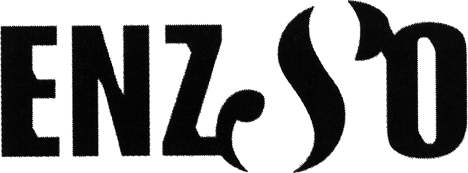
TOO MUCH POMP, NOT ENOUGH CIRCUMSTANCE
Queen's Wharf Events Centre, March 28
Reviewed by Bruce Stirling in Wellington's "The Dominion" March 29, 1996
THE marriage of classical orchestration with popular music has long been an undistinguished union, producing less-than-legitimate offspring that range from Deep Purple's loathsome 1970 Concerto for Group and Orchestra all the way to Manto-bleedin'-vani.
ENZSO is the newest progeny, the proud parents being the New Zealand Symphony Orchestra and Split Enz, but despite some notable achievements this is ultimately an unfortunate experiment.
Talents as great as ENZSO conductor Peter Scholes and Killing Joke's Jaz Coleman have tried, and failed, of late to meld rock and orchestras without neutering the former and bastardising the latter so the fact that original Enzer Eddie Rayner managed to get the balance right even some of the time is testament to his abilities.
Honourable mention must also go to Phil Judd, whose dark troubled spirit informed the most successful of the ENZSO songs. On the early Mental Notes album, frightfully art-rock songs such as Stranger than Fiction/Time for a Change and Under the Wheel were poetic, brooding, magnificent (okay, and a little pompous, but this was New Zealand circa 1976). They were also sufficiently open and musically complex to allow the orchestra some room to move to develop some themes, to play like an orchestra.
The rest of the Enz oeuvre, like most pop, derives its potency from its simplicity, the basic melody, the verse-chorus-verse familiarity of it all. Such a straitjacket stifles the awesome artistry, power and precision of the NZSO and though having a bit of fun with pop music might be diverting for an orchestra it doesn't do a lot for the pop music.
The deranged would-be punk fury of I See Red evaporated on a sea of strings, though Six Months in a Leaky Boat somehow stayed jauntily afloat despite a suspiciously Onedin Line-esque overture.
In the end, the best of the songs stamped their mark on the orchestra, rather than the other way around, but that left the orchestra little to do but the fiddle bits, little more than an extravagant adornment to the Finns; an impression reinforced by the rapturous reception given to their unplugged (and unorchestrated) set - pure Everly Brothers.
Guest spots from a gorgeously restrained Annie Crummer (I Hope I Never), the ever-clowning but deadly-serious-about-singing Dave Dobbyn (Poor Boy), a deadpan Noel Crombie (on spoons of course), and an awkwardly grand Sam Hunt (not knowing how to stand silently on stage during the musical interludes of Under the Wheel) only reinforced the dominance of the pop song over the orchestral arrangement.
Ultimately there was too much pomp, not enough circumstance, square pegs in round holes, an orchestrated litany of nice tries.